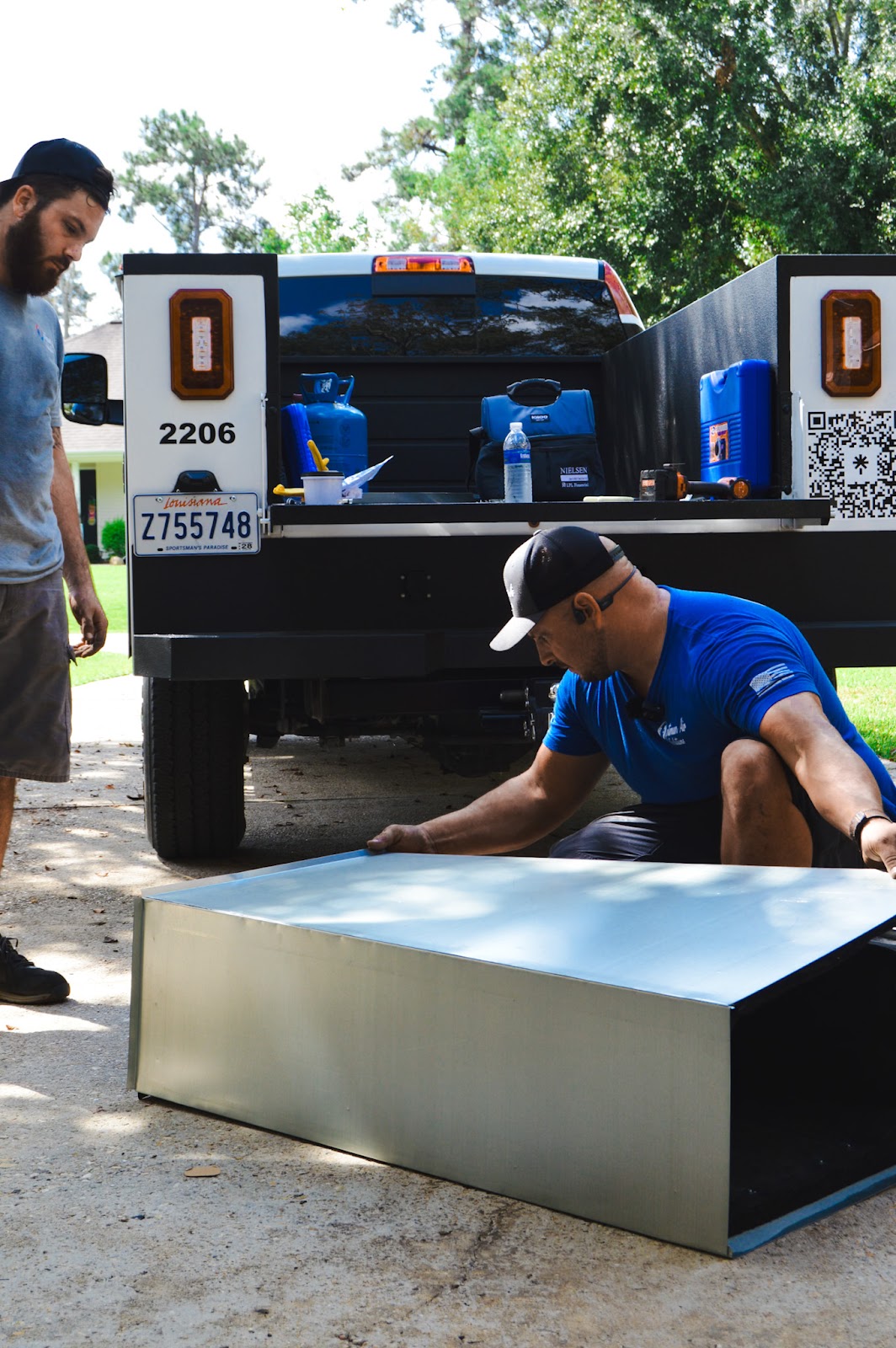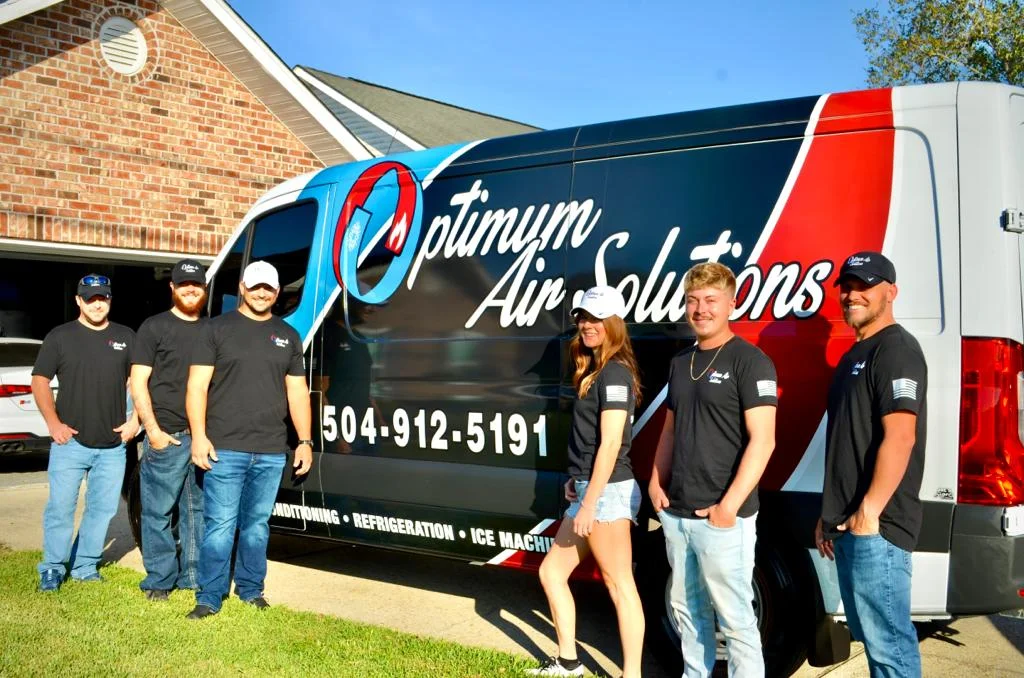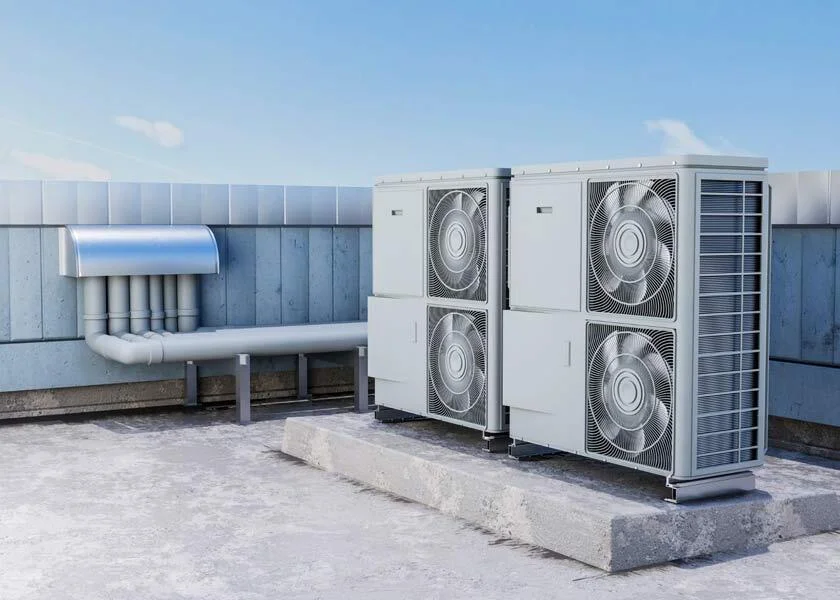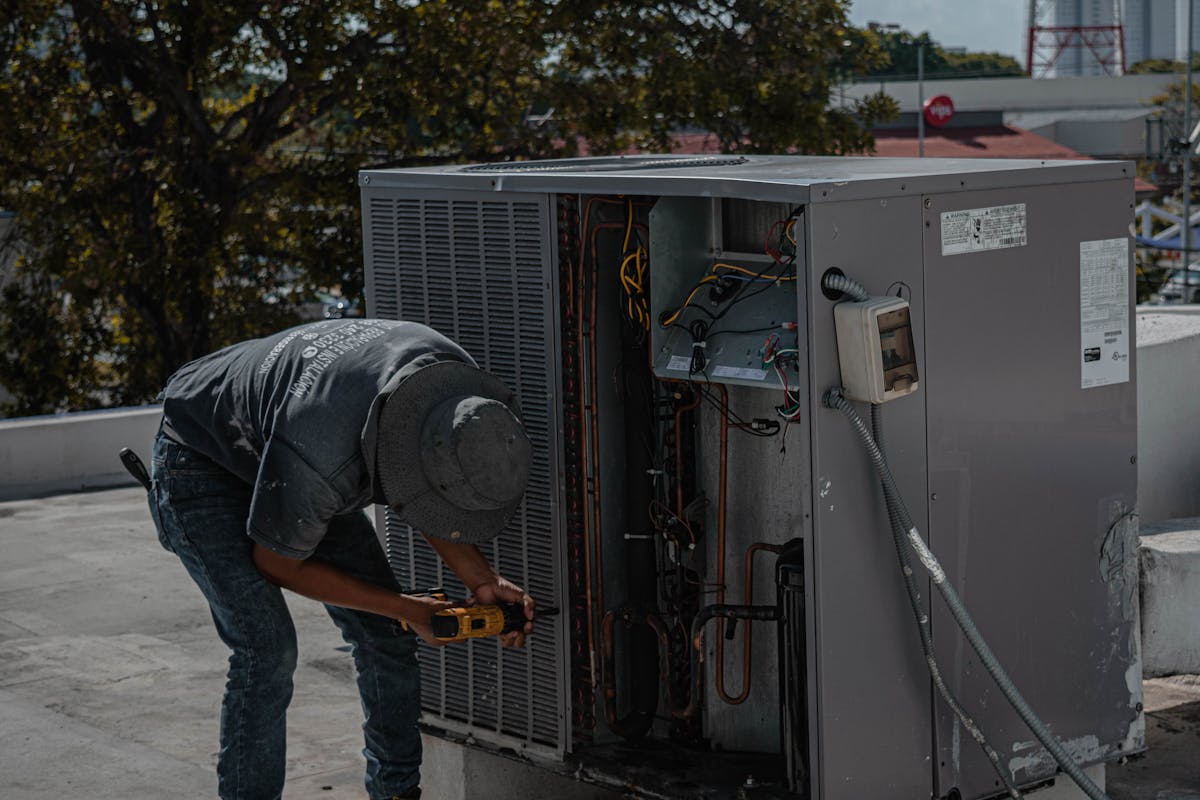
As any property owner knows, having an efficient, well-maintained water heater in your building is an important aspect of keeping occupants healthy and happy. Without it, there is no hot water for showers, laundry or washing dishes—worse, the water may contain rust or sediment and be unsafe to use at all. But how can you go about replacing tankless water heaters? And, more importantly, should you do it yourself?
Tankless water heater replacements have the potential to go wrong in a variety of ways, from incorrect water heater sizes to poor installation methods. Hiring the services of an experienced professional, like our team at Optimum Air Solutions, may not only allow you to avoid these costly mistakes, but also to keep your water heater functioning for a long time to come.
What is a Tankless Water Heater?
When thinking about a water heater, most people probably picture the conventional tank water heater. These models can hold up to around 80 gallons of water, though some of the most common sizes store around 50, and use natural gas, electricity, or other fuel sources to keep the water hot at all times. Because tank water heaters actually store the water they heat, they can take up a large amount of space, which can be inconvenient for smaller properties. While they often have the advantage of being less expensive to purchase and easier to operate and maintain, they may also raise your energy bill and have a shorter lifespan.
Tankless water heaters, on the other hand, are small, compact appliances which use gas or electrical components to heat your water on an as-needed basis. By storing the water off-site and only heating it as it passes through the unit, these models can lower your energy bill and provide you with a virtually limitless supply of hot water. Additionally, these models may be able to last for up to 20 years, allowing you to wait longer before replacing them. However, they are more expensive to purchase and install than tank heaters, and often struggle to supply hot water to several appliances at once. As such, larger properties or buildings with a high water demand may need multiple units.
Removing and Replacing Your Water Heater
Like most appliances, your tankless water heater will let you know when it needs to be repaired or replaced. Your job as a property owner is to pay attention to these signs. While some water heater problems, such as sediment buildup, are often an easy fix, age and serious issues may mean your current unit is a lost cause.
If you are wondering how to replace a tankless water heater, the most important thing to remember is not to attempt it yourself. Improperly installed heaters can cause a host of issues, from leaks to safety concerns. Instead of accruing further costs due to the need for additional repairs, make sure the installation is done right the first time.
While the process may differ based on models and contractor methods, tankless water heater replacement often involves:
-
Removing the old heater
- Contractors will first turn off the water and power supply, as well as the gas supply if applicable
- The heater will be disconnected from the water and gas lines, as well as any electrical wiring. If the unit you are replacing is a tank heater, draining the old heater will precede this step.
- The old heater will be properly disposed of
-
Installing the new tankless water heater
- The new unit will be mounted, preferably close to the necessary piping
- Water lines, as well as gas pipes and electrical wiring, will be connected and checked for leaks, and a pressure release valve will be attached
- The exhaust vent will be installed
- Water will be turned on for a few minutes in order to remove any air from the pipes
- Electrical connections will be rechecked
- The circuit breaker will be switched on and your unit’s startup procedure completed
Common Installation Mistakes to Avoid
In order to prevent installation mistakes from posing a danger to your wallet and property, it is important to understand potential causes for concern, as well as how to look for them. Problems common to tankless water heater installations include:
- Attempting DIY water heater removal or installation. It may be a predictable warning, but it is one which bears repeating as often as possible. At best, you may cause leaks, void your warranty or shorten the life of your heater. At worst, you could create a serious safety hazard for yourself.
- Choosing an improperly sized unit. A water heater which is too small for your space may struggle to provide hot water to everyone who needs it, while a unit which is too large may use up more energy than is necessary.
- Lack of ventilation. A tankless water heater which is not properly ventilated can cause gas leaks and reduce efficiency.
- Poor water quality. Hard water can lead to mineral buildup, blocking your pipes and negatively impacting your water pressure.
- Incompatible gas lines. Make sure the gas line used is the right size for your unit; lines which are too small may not supply enough fuel to heat the water.
- Make sure that your electrical system can handle the load. If not, your electric panel may need to be upgraded in order to increase its electrical capacity. Otherwise, you risk causing malfunctions or even short circuits.
- Lack of maintenance. Neglecting regular checks of your tankless water heater increases the risk of mineral buildups, clogged filters, leaks and other issues going undetected. Without maintenance, these issues may grow into costly, extensive problems.
Contact Optimum Air Solutions for Your Tankless Water Heater Replacement Needs
When considering how to replace a tankless water heater, it is important to remember that for the sake of safety, you should not be the one doing the replacement. Instead, once an issue is identified, make the smart decision and call a professional. They can assess your system, determine if a replacement is needed, file a permit, and complete the unit removal and installation quickly and safely.
Optimum Air Solutions is one such team of professionals. With over 20 years of experience maintaining heating and cooling systems for commercial and residential property owners, we have the expertise necessary to analyze your current water heater and find the perfect tankless replacement to suit your needs. So if you are experiencing water heater troubles, give us a call today. We’ll be on-site to provide assistance as soon as possible.
continue reading
Related Posts
There’s a simple truth when it comes to your HVAC
“Efficiency isn’t just about comfort. It’s about cost and resale.”
“An ounce of prevention is worth a pound of cure.”






